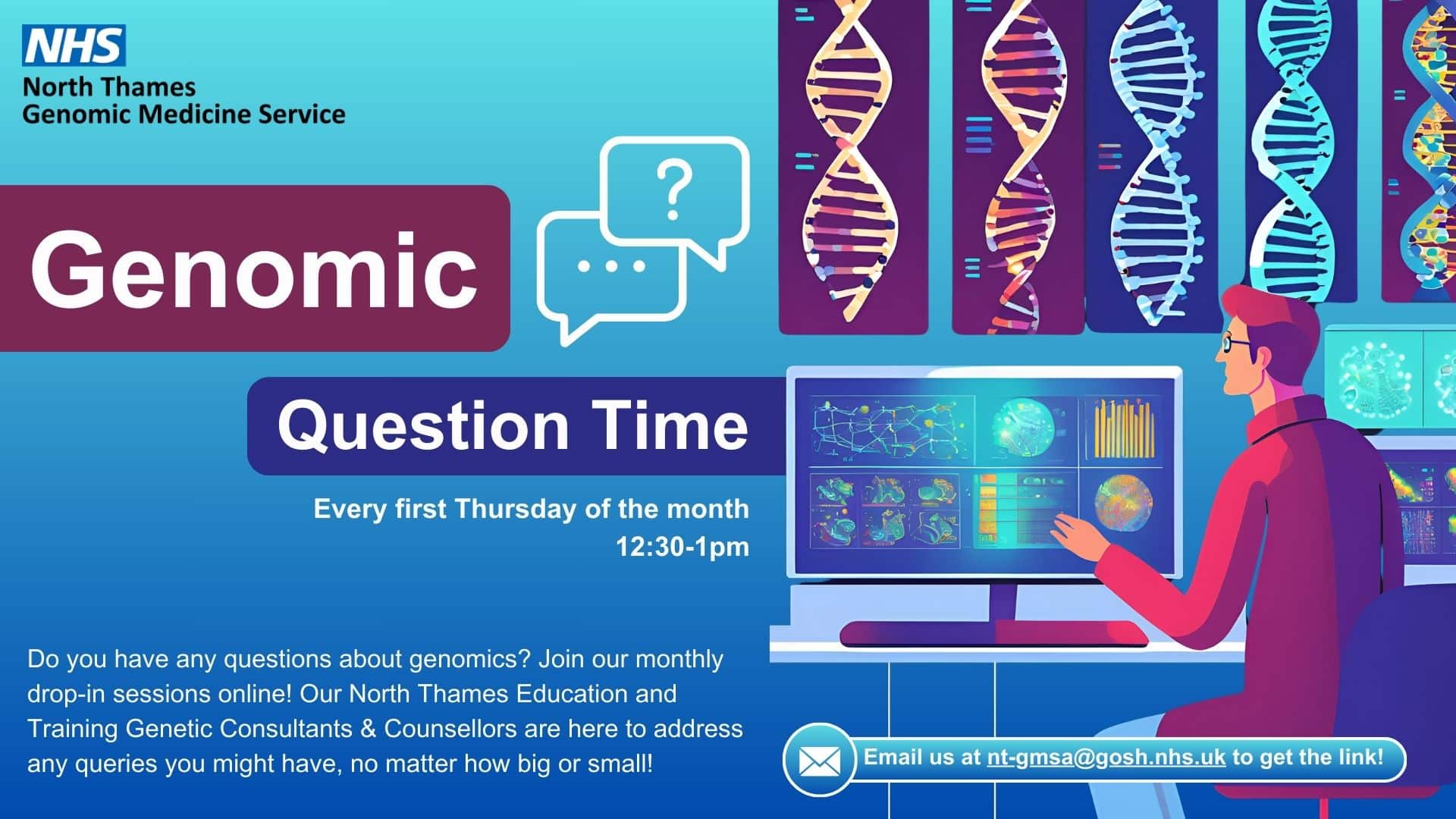Whole Genome Sequencing to Replace Microarray Testing from the 1st of December 2025

Update
Whole Genome Sequencing to Replace Microarray Testing from the 1st of December 2025
On 11 August 2025, we informed you that the significant financial pressures affecting the NHS were also impacting the NHSE Genomics Unit (GU), which commissions genomic testing. We explained that in response to this the NHSE GU, and the North Thames Genomic Medicine Service (NT GMS) / Genomic Laboratory Hub (NT GLH) have taken the following steps:
- Tests that do not appear in the National Genomic Test Directory (NGTD) are not commissioned by NHSE. Therefore, they will not be delivered by the GLH laboratories.
- Test requests that do not meet the eligibility criteria outlined in the NGTD will not be accepted
- As part of the eligibility criteria to proceed with testing, the clinical utility of the test must be stated by the referrer.
The NHSE GU also issued guidance related to Whole Genome Sequencing and Microarray Testing. The guidance states:
“The primary test for rare disease clinical indications with a test method of whole genome sequencing (WGS) is WGS, and not microarray. WGS based testing is more comprehensive and able to detect almost every type of genomic variant that a microarray can detect and has a higher sensitivity for the majority of variant types. Microarray testing should not be performed instead of WGS and should only be performed prior to/in addition to WGS where there is scientific and clinical utility to do so. Test requests should only be accepted after discussion with the NHS GLH Medical Leadership and with agreement from the NHS GLH Operational Director”
To align with this guidance from the NHSE GU, from the 1st of December 2025, The North Thames Genomic Medicine Service will no longer accept any request for Chromosomal microarray for any test indication in the National Genomic Test Directory (NGTD) where WGS is available.
This explicitly includes all individuals with who are eligible for R377 (Intellectual disability-microarray only). These patients should now be offered testing by WGS as the first line test. Where parental samples are available the test request should be made as a duo or trio of the proband and available parent(s). Microarray testing should not be requested instead of WGS and should only be requested as a first line investigation where there is scientific and clinical utility to do so e.g. strong clinical suspicion of chromosomal conditions like Williams syndrome, 22q11 deletion.
Order forms for Rare & Inherited Disease WGS can be found on our website. Please note that Whole Genome Sequencing test order forms cannot be updated by individual laboratories, so we request that you complete the form in full to avoid delays for your patient.
When ordering WGS, please request the R27 (Paediatric disorders) panel instead of the R29 (Intellectual Disability) panel for all developmental delay/ intellectual disability referrals as R27 is a super panel which covers the R29 panel genes and other relevant genes. Where R29 is requested, the GLH will convert this to R27 unless specifically stated on the test order form that there is a sound clinical reason not to do so. Clinicians should ensure that detailed clinical information including all applicable HPO terms are included.
All the relevant NGTD panels must be requested as part of the primary investigation. This will increase the diagnostic yield of the test and helps to get a diagnosis promptly.
Re-analysis of existing WGS data is extremely time consuming and the laboratory receive a very large number of WGS re-analysis requests (R387). This work could be avoided by comprehensive panel selection at the outset. We will now be strictly following published national reanalysis guidelines which can be found on the NHS Futures Platform and requests will only be actioned if they meet published eligibility criteria in the NGTD. Requests for WGS re-analysis must be made by completion of the appropriate request form with a clear description of clinical utility and reasons why the patient/family are eligible for re-analysis. It is therefore in you and your patient’s interest to include all relevant panels at the outset.
For all genomic test orders, the Clinical Utility of the test must also be stated – this should be recorded in the ‘relevant clinical information’ box. When providing this information one of three options indicated below must be stated with details of how it fits the chosen criteria.
- Patient management (determining therapeutic decisions and/or clinical investigations and/or surveillance programme)
- Patient, parents, or adult relative reproductive decision making
- Unaffected relatives are seeking predictive testing
Please note that whilst a patient may meet the eligibility criteria, if they do not meet the aforementioned clinical utility criteria the genomic test will not be conducted. A test should not be ordered if it is for interest only.
From the 1st of December 2025, the NT GMS Rare & Inherited Disease Laboratory will not accept incomplete test order forms – all sections, including stating the clinical utility of the test in the ‘relevant clinical information section’ of the form must be completed.
To support clinicians with the implementation of new test order forms there will be Drop-In Educational Sessions across November and December – these will be held on the following dates.
- Thursday 6th November 12-1pm
- Thursday 20th November 11am-12pm
- Thursday 4th December 12-1pm
- Monday 8th December 3-4pm
If you would like to attend one of these sessions, please email nt-gmsa@gosh.nhs.uk. Our website also has sustainable education resources on whole genome sequencing for in-depth training.
Our website has information on the National Genomic Test Directory, genomic testing pathways, referral forms, and contact information for your local laboratory. We will continue to support you and work with you to ensure that your patients receive the genomic testing that they are entitled to.
October 30, 2025


